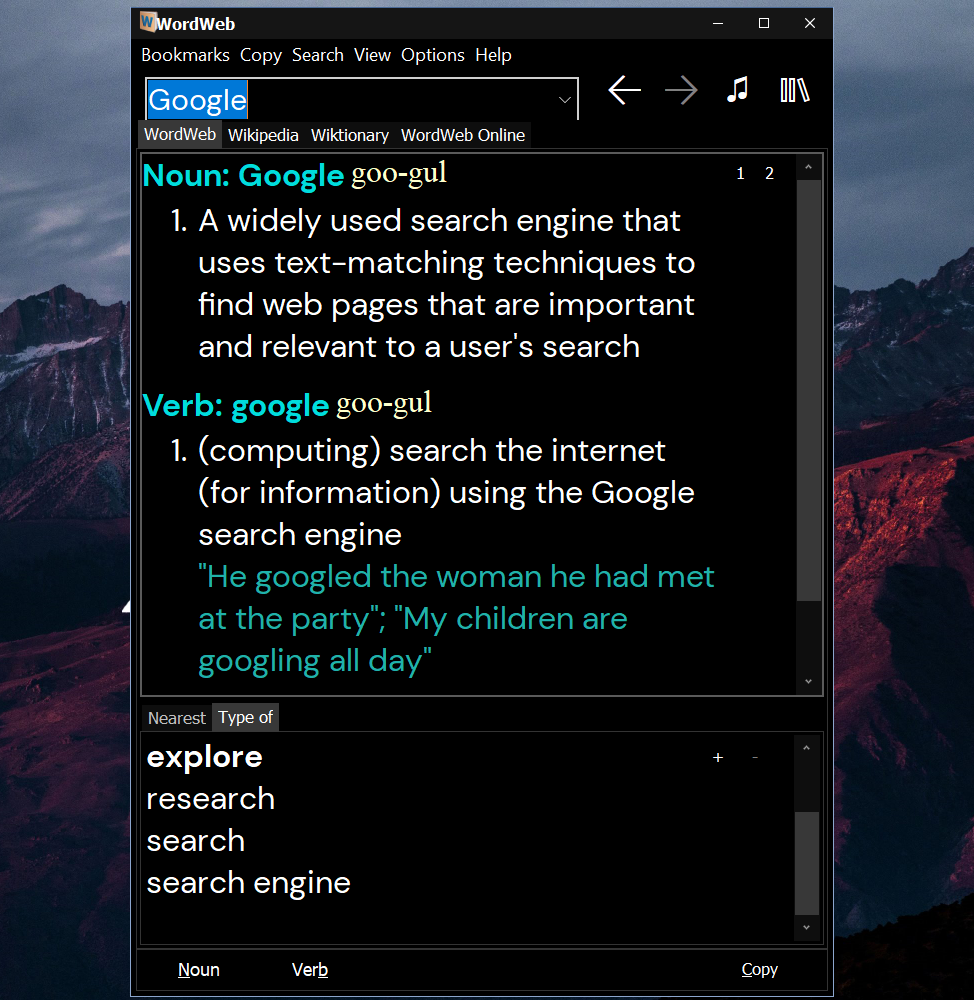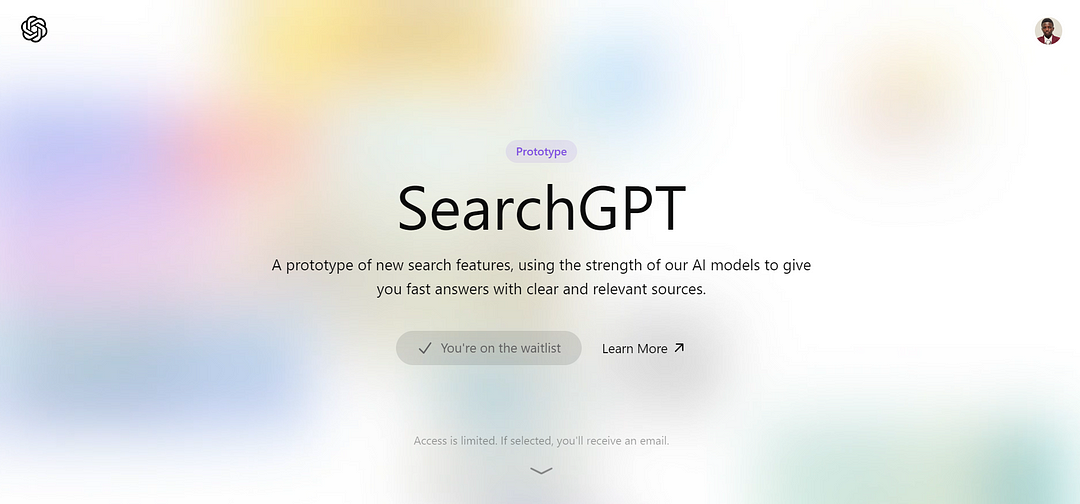I dunno, but I know.
There’s been a lot of noise recently about OpenAI’s new product on its lineup, SearchGPT, which according to the company, is an AI-powered search engine. But, what does that mean for Google and other competitors in the Search Engine Market?
For decades, Google has reigned supreme in the search engine domain, with its powerful algorithms, extensive index, and innovative features. Google holds about 91.1% of the market share of Search Engine Business {apparently before SearchGPT 😂}.
Honestly, I’m quite happy and impressed with the efforts put into Google as a company. At the start, it didn’t do well (as usual with most beginnings), but over time, Google grew so well and became so popular that technically searching for content on the internet is usually associated with Google.

Yeah, Google is a verb in some dictionaries (at least the one I have 🙂, WordWeb), and not just a company, or sub-company in its case. Google is a subsidiary of Alphabet Inc., which oversees various other ventures like Waymo (which focuses on developing autonomous driving technology), Verily (which focuses on health data analysis and innovative health solutions), and Calico (which focuses on researching longevity and combating ageing-related diseases).
Google currently provides so many free and paid services, from the popular Google Drive (which enables me and a lot of people back up files online or in Google’s basement 😂), Google News, Google Maps, Google Docs (the Microsoft Suite rival), and now new and available on its package, the Google AI-powered chatbot, Bard, now Gemini.
Flashback: Oh, how I remember when Bard was still heavily under test. It was actually ok and well built to carry out its functions in some cases, but as expected, betas are for testing. From there, the whole AI market started getting more inputs and it was no longer just ChatGPT being the main chatbot, now it had other competitors. Gemini is quite recommended for running tasks, so you can check it out if you’re willing to.
Well, after joining the waitlist for SearchGPT, I’m quite expectant of seeing the competition that Google now has.

In case you wanna test and check out the new game changer {possible 😅}, here’s a quick link.
BACK TO BUSINESS
SearchGPT is the latest offering from OpenAI, building upon the success of its predecessors like GPT-4. This new AI-powered search engine aims to provide users with a more organized and intuitive search experience, contrasting sharply with Google’s traditional link-based results. But wait a minute, doesn’t Perplexity try to do this or already is doing it? Well, that’s for the arguments to go on. So apparently to OpenAI, their whole idea on this is unlike traditional search engines that present a list of links, instead of the whole “ten blue links” format of the major competition, Google, and other search engines (to avoid being biased 😅).
SearchGPT’s main goal is to directly provide the information, providing users with precise answers, citations, and maybe images within a single response. WHY! Yeah, at some point, it could work well, mostly when there’s a limited search period or the mood for exploration isn’t just there. I get. It happens to me sometimes too but, there’s ChatGPT which now, most users have access to GPT-4-o which can provide information from the internet with the right prompt 😁. So, Does this replace it? If you want me to write about this, you could indicate in the comments section.
WE MOVE ON
From my research, SearchGPT uses a deep understanding of human language to interpret and respond to queries more naturally. Why does this remind me of good ol’ ChatGPT, ’cause it does. Also, SearchGPT would be providing a conversational interface unlike just a bunch of links with a high possibility of what you want. It’s not bad. It’s just not something I believe would cause a massive turn around in the search engine market within days (for now :smile).
A major reason for which users may choose SearchGPT over the classic Google and other search engine platforms, is Ads. Majorly, Google’s business model heavily relies on advertisements, which can sometimes clutter search results and diminish user experience. In contrast, SearchGPT’s focus is on providing the best possible answers without the distraction of ads. What can a few ads do :laugh.
SO, HOW’S GOOGLE’S END?
Analysts suggest that AI-powered search tools from OpenAI and competitors like Perplexity are pressuring Google to improve its own offerings. Google has put in efforts recently to integrate AI into its search results, such as AI Overviews, and Search Generative Experience (SGE). These advancements aim to improve search results by making more relevant responses available to users in order to reduce the scrolling through and clicking just to find a specific thing.
Also, Google has been investing heavily in AI and machine learning to enhance its search capabilities. Features like BERT (Bidirectional Encoder Representations from Transformers) have already improved Google’s understanding of context and user intent.
Not just that but, Google continues to innovate with features like Google Assistant which Gemini is integrated with, taking the whole mobile assisting game to a whole different level, improving voice search, and now a recent addition, visual search. These enhancements aim to make searching more interactive and user-friendly.
Plus, with the years of accumulated data by Google, Google’s more advantaged, making development and improvement sorta easier, like refining the search algorithms and improving result accuracy.
Meanwhile, OpenAI’s entry with SearchGPT places it in direct competition not just with Google, but also with Bing and other emerging AI search tools, so… not really a direct opposition.
While it is too early to predict the definitive outcome of this emerging rivalry, the emergence of SearchGPT represents a potential turning point in the industry. Well, it is too early to declare a definitive winner in the search engine war but, Google’s established dominance, extensive resources, continuous innovation, and vast user base provide it with a strong defense against emerging competitors.
If successful, OpenAI could capture a significant share of the search market by offering a more efficient and user-friendly alternative. The ongoing developments in AI search technology will likely continue to shape the competitive dynamics between these tech giants in the coming years.
Done and dusted. Remember to follow me for more insights into emerging technology, random science topics, or even crazy personal opinions and ideas on various societal topics and trending topics (reasonable ones). I’m SamY and I’ll catch you in the next one.
To learn more about SearchGPT, Check out OpenAI’s full article or page on it — https://openai.com/index/searchgpt-prototype/
WordWeb, just in case — https://wordweb.info/


